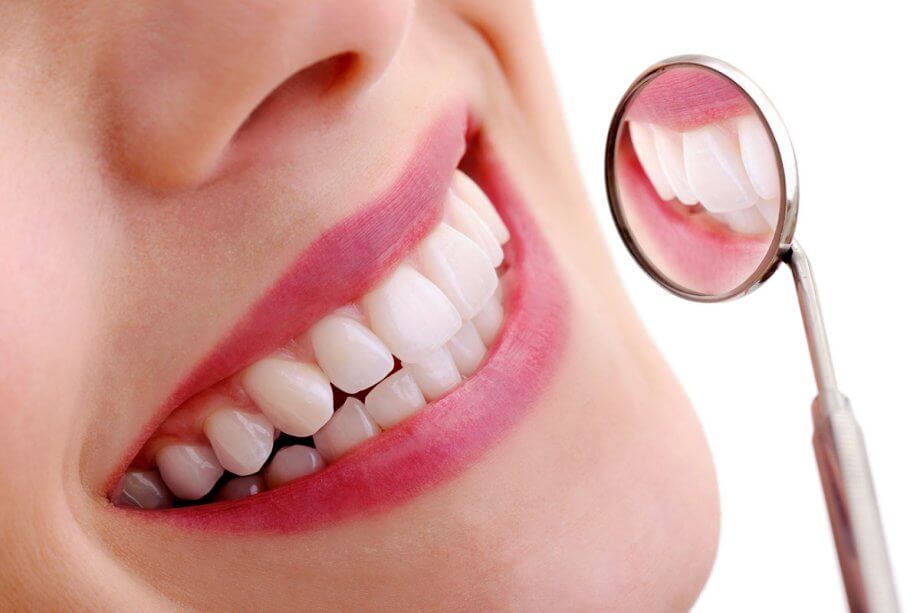Menopause marks a significant transition in a woman’s life, bringing with it physical and emotional changes that can impact overall health. While many are aware of the effects of menopause on bone density and skin elasticity, fewer recognize its influence on oral health. Hormonal changes, particularly the decline in estrogen, can affect the mouth's tissues, leading to discomfort, dental issues, and changes to the appearance of the teeth and gums. At Cosmetic & Reconstructive Dentistry, we are committed to ensuring your smile remains healthy, beautiful, and functional during every stage of life.
Understanding how menopause affects oral health is key to maintaining a radiant, confident smile. Here, we’ll explore the connection between hormonal changes and oral health, and we’ll show how regular dental care can address these challenges.
How Menopause Can Impact Oral Health
Hormonal Changes and Saliva Production
Menopause can significantly reduce the body’s estrogen levels, which has a ripple effect on oral health. Salivary glands contain estrogen receptors, so the decrease in estrogen production affects saliva production. This often results in dry mouth, a condition known as xerostomia. Saliva plays a critical role in washing away food particles, neutralizing acids, and promoting enamel remineralization. Without adequate saliva, the risk of cavities, gum irritation, and bad breath increases.
Women experiencing dry mouth may also notice difficulty swallowing, altered taste, or even digestive issues. Saliva contains the enzymes necessary for breaking down food, and its reduced presence can impact the first phase of digestion.
Gum Health & Bone Density
The decrease in estrogen not only affects soft tissues but also has implications for bone health, including the jawbone. Women may experience periodontal (gum) disease more frequently or find it worsens in severity. Symptoms such as swollen, bleeding, or receding gums can be linked to this hormonal shift. Additionally, decreased bone density, especially in the jawbone, heightens the risk of tooth loss or movement.
At Cosmetic & Reconstructive Dentistry, we are sensitive to the effects of estrogen loss on the appearance and functional integrity of your smile. Our thorough periodontal evaluations help to catch and treat gum disease early, protecting both your teeth and the underlying bone.
Menopausal Gingivostomatitis & Burning Mouth Syndrome
Some women develop menopausal gingivostomatitis, characterized by painful, inflamed gums that may appear red or purple. This condition occurs due to hormonal shifts that increase gum sensitivity and inflammation. Another condition linked to menopause is burning mouth syndrome, where patients feel oral discomfort or a scalding sensation without a clear cause. Both conditions highlight the intricate relationship between systemic health and oral well-being.
Dental Plans to Promote Oral Health During Menopause
Here's how a strong dental plan can mitigate the risk of dental health decline during menopause:
Restoring Moisture to Combat Dry Mouth
For menopausal women dealing with dry mouth, we recommend creating a customized care plan that includes advanced dental solutions. Prescription rinses, specialized dry mouth toothpastes, and therapies targeted at stimulating saliva production can significantly improve daily comfort.
Additionally, our team provides guidance on maintaining proper hydration and incorporating sugar-free lozenges or xylitol gum into your routine. These measures not only enhance saliva production but also limit the accumulation of harmful bacteria.
Combating Gum Disease with Comprehensive Care
Menopause may put women at greater risk for gum disease, but with proactive care, it doesn’t have to compromise your smile. We take a personalized approach to gum health, combining deep cleanings (scaling and root planing) with prescribed therapeutic mouthwashes when necessary. For more severe cases, periodontal therapy can prevent further gum and bone damage while promoting healing.
For patients concerned with gum aesthetics, our practice also offers minimally invasive cosmetic treatments, such as gum contouring, to restore balance and symmetry to your smile.
Addressing Bone Loss & Tooth Stability
Bone loss in the jaw can lead to tooth movement or even tooth loss, affecting both your oral health and the aesthetics of your smile. To counteract these changes, our team may recommend bone grafting procedures to reinforce the jawbone’s strength. For missing teeth, dental implants provide a durable and natural solution, preserving both function and appearance.
Our porcelain crowns and bridges are designed to blend seamlessly with your natural teeth, restoring your smile’s integrity. Whether you’re addressing tooth damage or loss, these custom restorations are a key part of maintaining a youthful, healthy grin.
Enhancing Smile Aesthetics
Hormonal changes during menopause can also affect the appearance of the teeth, with many women noticing increased staining, discoloration, or wear on their enamel. Cosmetic & Reconstructive Dentistry offers a range of advanced cosmetic treatments to address these concerns:
- Teeth Whitening – Brighten your smile and reduce discoloration caused by age, diet, or hormonal changes with professional-grade whitening treatments.
- Veneers – These thin, custom-made shells are placed over the front surfaces of your teeth to correct issues such as chips, discoloration, and minor misalignment.
- Bonding – For smaller repairs or enhancements, dental bonding uses tooth-colored resin to restore the natural beauty of your smile.
With advanced cosmetic options, you can feel confident in your smile, no matter your stage of life.
Regular Check-Ups & Oral Health Maintenance
Preventive care is essential for managing the unique oral health challenges that menopause presents. We recommend scheduling regular dental appointments every three to six months to monitor changes, address problems early, and maintain optimal oral health. During these visits, thorough cleanings, oral cancer screenings, and evaluations of teeth, gums, and jawbone allow us to provide targeted care tailored to your needs.
How to Protect Your Oral Health During Menopause
While a strong dental plan can mitigate the effects of menopause on oral health, there are also steps you can take at home to prevent complications:
- Brush twice daily with fluoride toothpaste to protect enamel and remove plaque.
- Floss at least once a day to clear debris from between teeth and below the gumline.
- Incorporate a water flosser if traditional flossing is uncomfortable.
- Maintain a well-balanced diet rich in calcium and vitamin D to support bone health.
- Drink plenty of water to stay hydrated and counteract dry mouth.
- Avoid sugary or acidic foods that can weaken enamel over time.
By combining these measures with professional care from Cosmetic & Reconstructive Dentistry, you’ll be well-equipped to preserve your smile.
Partnering with Cosmetic & Reconstructive Dentistry
Your oral health is an integral part of your overall well-being, especially during menopause. At Cosmetic & Reconstructive Dentistry, we’re here to support you with compassionate, patient-centered care that emphasizes prevention, restoration, and aesthetics. Whether you’re seeking relief from dry mouth, treatment for gum disease, or a smile makeover to boost confidence, our team of experienced professionals is dedicated to helping you achieve your goals.
Frequently Asked Questions
1. How does menopause affect oral health?
Menopause can bring about changes in oral health due to hormonal shifts. Common issues include dry mouth, increased risk of gum disease, and sensitivity in the teeth and gums. These changes can make maintaining oral health more challenging, but proactive care and regular dental visits can help mitigate these effects.
2. What treatments are available to address dry mouth during menopause?
Dry mouth is a common concern during menopause due to decreased saliva production. Treatments may include using specialized mouthwashes, staying well-hydrated, or prescription saliva substitutes. Your dentist can recommend personalized solutions to maintain comfort and protect your oral health.
Contact Cosmetic & Reconstructive Dentistry
Don’t wait to take control of your oral health during menopause. Schedule a consultation with Dr. Donald Miller today, and together, we’ll create a plan tailored to your needs—so you can smile with confidence and comfort. Call 203-255-6878 to schedule your appointment. Or, book an appointment online.
Dr. Miller specializes in TMJ treatment, Same Day Crowns, Veneers, Teeth Whitening, and general family dental care. He has practiced dentistry in Fairfield, CT for over 25 years.

